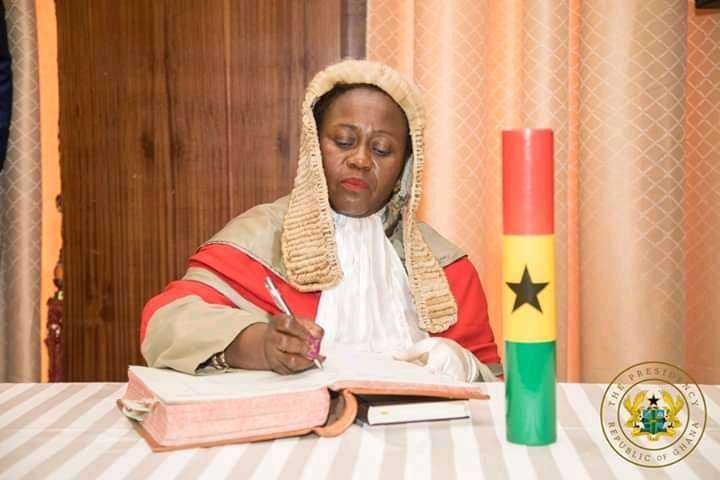The Supreme Court has adjourned the substantive case on the four seats that have been declared vacant by the Speaker of Parliament Alban Bagbin to November 11.
The Apex Court will be interpreting Article 97 of the 1992 Constitution of Ghana outlines the tenure of office for Members of Parliament.Article 97(h) provides: "If a member leaves the party of which he was a member at the time of his election to join another party or remains in Parliament as an independent; or, under Article 97(h), if he was elected as an independent candidate and subsequently joins a political party…".On Wednesday, October 30, the apex court directed the Speaker to file processes by November 11.
The Supreme Court on that same day dismissed the application by the Speaker to set aside its earlier ruling that stayed the execution of the Speaker's declaration of four seats vacant.During court proceedings on Wednesday, October 30, the court said the speaker's application had no merit."We have considered the application, and we have come to the conclusion that the grounds supporting the application have no merit," the Chief Justice stated."As the court pleases," Bagbin's lawyer, Thadeus Sory reacted.It would be recalled that following an ex parte motion filed by Alexander Afenyo-Markin over the declaration of vacant seats by Bagbin, the apex court ordered for a stay of execution of the declaration.In response, Bagbin filed an application at the apex court through his lawyer, Thaddeus Sory.
The Speaker contends that the Supreme Court misapplied the law by putting on hold the execution of his ruling because it was a non-judicial decision.The Speaker in his reliefs prayed the court to strike out its stay of execution of his ruling on the declaration of the four seats vacant, among others.The Speaker is further seeking an order from the court to set aside the writ filed by the Leader of the New Patriotic Party (NPP) caucus, Alexander Afenyo-Markin, which sought to prevent the Speaker from making any ruling on the four seats.According to the Speaker, the Supreme Court had powers to put on hold rulings of courts and not those of non-judicial bodies such as Parliament."In terms of orders staying of execution of rulings, the Supreme Court's powers, under the 1992 Constitution of the Republic of Ghana and statute, to stay execution of rulings are limited to rulings of itself and of courts lower in the judicial hierarchy but do not extend to a ruling of the Speaker of Parliament who is not part of the judicial hierarchy," the motion stated."With regard to the first defendant's rulings in Parliament, a separate arm of Government, there fore, such rulings are not rulings within the judicial hierarchy so as to be the subject matter of 'an application for stay of execution' and a judicial order staying their execution," it added.

